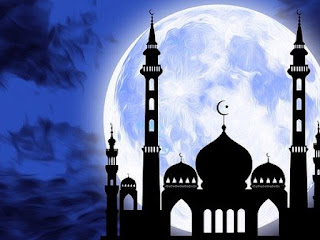Significance and virtues of Shabbat
 |
| Significance and virtues of Shaba Barat |
The night before the 14th day of the month of Shaban is called ‘Shaba Barat‘. The word Shabbat comes from Persian. ‘Shab’ means night, ‘Barat’ means liberation.
Shabbat means the night of liberation. The Arabic for Shabbat Barat is ‘Lailatul Baraat’. In Hadith Sharif which is called ‘Nisaf Sha’ban’ or ‘Rajni of the middle day of the month of Sha’ban’. In many countries of the world including the Indian subcontinent, Persia, Farsi, Urdu, Bengali, Hindi and other languages, which is better known as ‘Shabe Barat’.
In the Qur’anul Karim, ‘Ha-mim! Swear! Of the Bright Book, verily I sent it down on a blessed night; Surely I was the warner. So that all important matters are determined. This command is from me, surely I am the messenger.’ (Surah-44 Dukhan, verses: 1-5).
The Mufassirs say: Here the full moon night in the month of Shaban is meant as ‘Lailatum Mubaraka’ or the blessed day. (Tafseer Mazhari, Ruhul Ma’ani and Ruhul Bayan). Hazrat Ikrima (R.A.) and other commentators have narrated that the second verse of Surah Dukhan refers to the Night of Blessings. (Ma’ariful Qur’an).
There is a Hadith Sharif, “Narrated by Hazrat Mu’adh Ibn Jabal (RA), the Prophet (PBUH) said, “Allah, the Most High, looks at the creation on the night of Ardha Shaban and forgives everyone except the polytheists and the haters.” (Ibn Hibban: 5665, Ibn Majah: 1390, Razin: 2048; Ibn Khuzaima, Kitabut Tawheed, page: 136, Musnad Ahmad, Vol. IV, page: 176).
The Prophet (PBUH) said, ‘It is the night of half Sha’ban. On this night, Allah pays attention to His servants, forgives those who seek forgiveness, and favors those who ask for mercy. And leave the haters in their condition.
Hazrat Aisha Siddiqa (R.A.) said, Once Rasulullah (S.A.W.) stood in prayer and prostrated for so long that I thought he had died. I then got up and shook his toe, his toe moved; He got up from Sijdah and after finishing the prayer looked at me and said, “O Aisha! Do you have this fear?” I replied, ‘O Messenger of Allah (PBUH), I feared from your long prostration whether you had died or not.’ The Prophet (PBUH) said, ‘Do you know what night it is?’ You know.’ Then the Prophet (PBUH) said, ‘It is the night of half of Shaban. On this night, Allah pays attention to His servants, forgives those who seek forgiveness, and favors those who ask for mercy. And leave the haters in their condition.’ (Shu’abul Iman, Volume III, Page: 382).
Narrated by Hazrat Aisha (RA): The Prophet (PBUH) used to come to Madinah’s graveyard ‘Jannatul Baqi’ at night and pray for the dead. He also said that the Prophet (peace be upon him) told him that Allah forgives more sinners than the wool of the sheep and goats of Bani Kalb on this night. (Tirmidhi: 739).
Rasulullah (SAW) said, When the middle day of Sha’ban comes, you will worship Nafal at night and fast during the day. (Ibn Majah). The Prophet (PBUH) said, When the night of the 14th of Sha’ban comes, spend that night in worship and fast during the day.
Because, after sunset on this day, Allah Ta’ala came down to the sky of the world and called, ‘Are you asking for forgiveness? I will forgive; Are there any Riziq candidates? I will give sustenance; Are you in any danger? I will deliver.’ Thus till dawn Allah continued to call mentioning the various needs of people. (Ibn Majah: 1384).
Apart from this, Ayamebids have nafl fast on 3rd, 14th and 15th of every month, which was observed by Hazrat Adam (A.S.) and our beloved Prophet (S.A.W.) also observed it, which is basically Sunnah. The famous Muhaddith Faqih Hafiz Ibn Rajab (RA) said that the fast of this day is included in the fast of Ayamebids. (Latayiful Maarif, page: 151).
Apart from this, the first date, middle date and last date of Nafal fasting are important. Fasting on Shabbat also falls under this. In the Saum Dawoodi system, one fasts one day after another, but every odd-numbered date is fasted and combined with the Shabbat fast.
Above all, the Prophet (PBUH) used to observe more nafal prayers and nafal fasts in the months of Rajab-Shaban after the month of Ramadan, sometimes 10, sometimes 15, sometimes 20 nafal fasts, sometimes more in the month of Shaban. Even Ummuhat al-Mu’minin narrated that Rasulullah (SAW) used to start Nafal fasting in this way in the month of Sha’ban, it seemed that he would never break his fast again. (Muslim).
